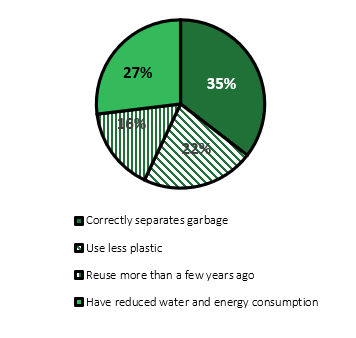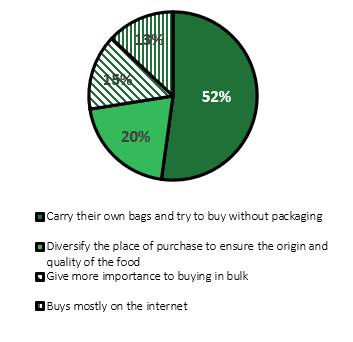At World Environment week the Silestone Institute offers advices to be more sustainable.
- The Silestone Institute offers 9 tips to be more sustainable in the kitchen.
- Environmental awareness conditions the use of the kitchen at all levels.
June 5 is World Environment Day. The awareness for the sustainability of the planet has led a large part of the population to be much more aware and active in preserving the environment in the most common actions. For specific uses, the kitchen is one of the home spaces that most reflects this trend.
In the kitchen there are many key aspects to be more “sustainable”: Here are 9 tips
- Buy the food you need. Do not accumulate in excess. In this way we reduce the over exploitation of resources and the waste of food.
- Avoid, as far as possible, the use of plastic materials and containers both in the purchase and in the handling and cooking of food, as well as in other products. Or failing that, buy more sustainable packaging.
- Cook the amount of food you are going to consume and take advantage of the leftovers.
- Try to use the necessary water for washing and cooking without leaving the tap open on for longer than necessary to save water.
- Make the most of the natural light you can have in your kitchen.
- Keep in mind that the fridge and freezer are the most electricity consuming appliances. Try to buy efficient appliances with an energy label A +++ or A ++.
- Try to fill the dishwasher, washer and dryer to full load to save electricity consumption.
- Proper space design contributes effectively to saving water and energy, and facilitates food storage and preservation, recycling or cleaning.
- Remember to recycle packaging and food in accordance with waste classification rules and systems.
Environmental awareness conditions the use of the kitchen at all levels
According to the Global Kitchen study “The kitchen, the heart of the home”, awareness of the impact of human consumption on the natural environment is increasing, which is generating a change in household habits with the aim of reducing the environmental footprint.
How the impact of consumption in the kitchen is reduced
- 35% correctly separates garbage
- 27% have reduced water and energy consumption
- 22% use less plastic
- 16% reuse more than a few years ago

At the time of making the purchase, greater awareness of the environment has led to the generalization of habits such as taking the bags to stores and purchasing products with fewer packaging.
Incorporation of environmental criteria in the purchase of food
- 52% carry their own bags and try to buy without packaging
- 20% diversify the place of purchase to ensure the origin and quality of the food
- 15% give more importance to buying in bulk
- 13% Buys mostly on the internet

The Global Kitchen study, presented in 2019, is based on a consumer survey in 9 countries (Spain, Italy, the United Kingdom, Scandinavia, the United States, Canada, Australia, Singapore and the United Arab Emirates) and on the expert vision of 23 professionals from different specialties.
